Son Dakika Son Dakika Ö'lümünü Oğlu Duyurdu Usta Oyuncu Maalesef Hayatını Kaybetti!!Ayrıntılar Haberin Devamındadır..Haberiin Devamını Okumak Ve Görmek İçin Lütfen G'örsele D'okunarak Bir Sonraki Sayfaya Geçiniz.

Ölümünü oğlu duyurdu

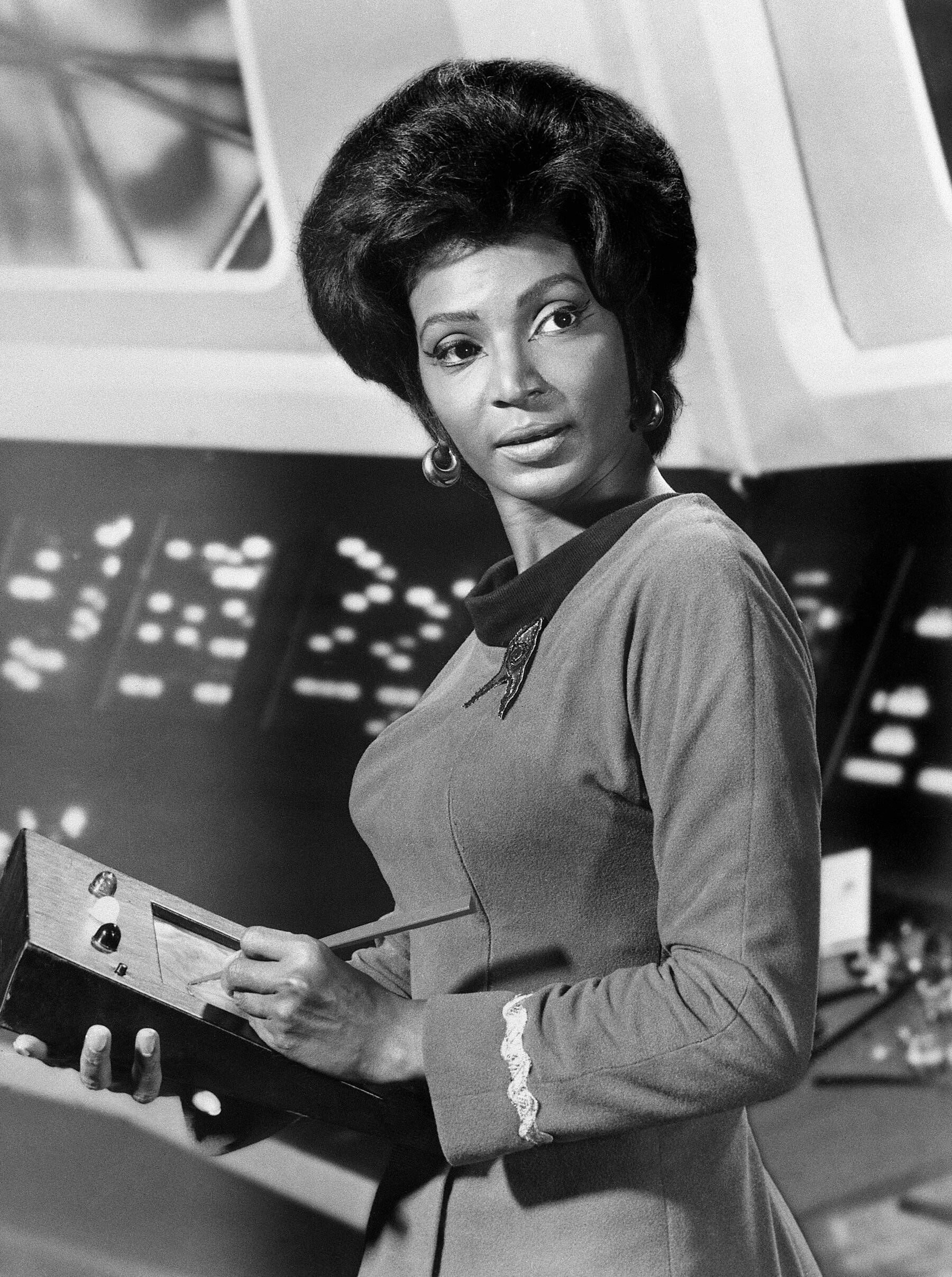 Bir döneme damga vuran efsane bilim kurgu dizisi Star Trek'te (Uzay Yolu) ‘Uhura’ karakterini canlandıran Nichelle Nichols, 89 yaşında h-ayatını k-aybetti. Star Trek'te ‘Uhura’ rolünü canlandıran Nichelle Nichols h-ayatını k-aybetti Nichelle Nichols'ın ö.lümünü oğlu Kyle Johnson, Facebook'tan duyurdu.Eski menajeri Zachery McGinnis de ö-lümü doğruladı ancak daha fazla ayrıntı vermedi. Bayan Nichols, 2015 yılında felç geçirmişti. Nichelle Nichols, 1960'larda orijinal “Uzay Yolu
Bir döneme damga vuran efsane bilim kurgu dizisi Star Trek'te (Uzay Yolu) ‘Uhura’ karakterini canlandıran Nichelle Nichols, 89 yaşında h-ayatını k-aybetti. Star Trek'te ‘Uhura’ rolünü canlandıran Nichelle Nichols h-ayatını k-aybetti Nichelle Nichols'ın ö.lümünü oğlu Kyle Johnson, Facebook'tan duyurdu.Eski menajeri Zachery McGinnis de ö-lümü doğruladı ancak daha fazla ayrıntı vermedi. Bayan Nichols, 2015 yılında felç geçirmişti. Nichelle Nichols, 1960'larda orijinal “Uzay Yolu
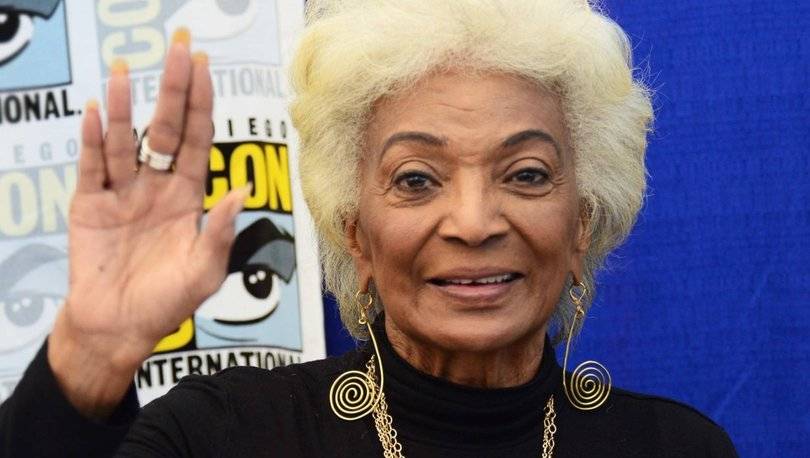 serisinde iletişim şefi Uhura rolüyle tanınmıştı. 60'ların ABD'sinde siyah bir kadının dizide önemli görevleri olan bir subayı canlandırması o yıllarda gündem olmuştu.Yıldız gemisi Enterprise'ın köprüsünde Bayan Nichols, amamı erkek olan subaylar arasında göze çarpıyordu. Uhura, siyahların tam eşitlikten yararlanacağı umutlu bir geleceğin örneği olarak, komuta dördüncüsü olarak sunuldu. Nichols, teğmenlikten komutanlığa terfi eden Uhura'yı 1979 ve 1991 yılları arasında “Star Trek”in altı uzun metrajlı filminde de yeniden canlandırdı
serisinde iletişim şefi Uhura rolüyle tanınmıştı. 60'ların ABD'sinde siyah bir kadının dizide önemli görevleri olan bir subayı canlandırması o yıllarda gündem olmuştu.Yıldız gemisi Enterprise'ın köprüsünde Bayan Nichols, amamı erkek olan subaylar arasında göze çarpıyordu. Uhura, siyahların tam eşitlikten yararlanacağı umutlu bir geleceğin örneği olarak, komuta dördüncüsü olarak sunuldu. Nichols, teğmenlikten komutanlığa terfi eden Uhura'yı 1979 ve 1991 yılları arasında “Star Trek”in altı uzun metrajlı filminde de yeniden canlandırdı
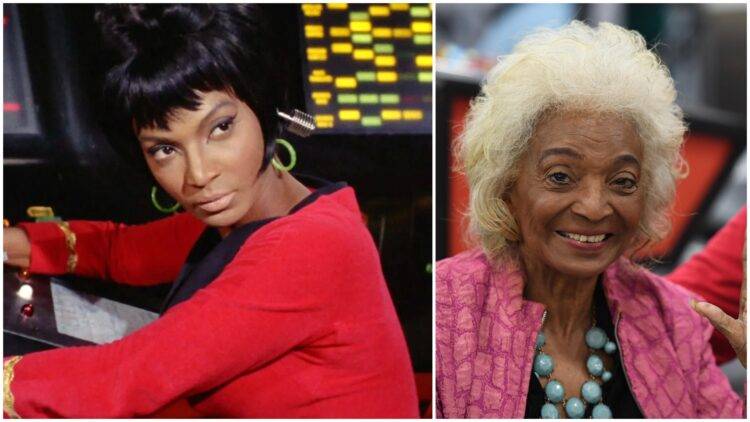 “She walks in beauty like the night. …”
“She walks in beauty like the night. …”A grinning Spock greets Lieutenant Uhura with a line of Byron at one point in their decades of shared “Star Trek” adventures. Now, this was way, way back when Leonard Nimoy’s Spock occasionally grinned, but walk with me here:
Even the alien knew a queen when he saw one.
And what a queen. Those boots. That dress. That eye makeup. That glorious voice.
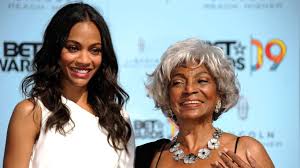 Nichelle Nichols, the woman who brought Uhura to life, died last week at the age of 89. Her contribution to the collective imagination of America — whether on the television screen or in her real life — cannot be overstated.
Nichelle Nichols, the woman who brought Uhura to life, died last week at the age of 89. Her contribution to the collective imagination of America — whether on the television screen or in her real life — cannot be overstated.With not a hair out of place and fabulous earrings dangling, she was Communications Officer, fourth in command of the Federation starship U.S.S. Enterprise in the 23rd century.
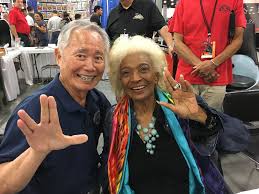 She was the embodiment of a declaration splashed across billboards decades later: There Are Black People in the Future.
She was the embodiment of a declaration splashed across billboards decades later: There Are Black People in the Future.When “Star Trek” debuted on NBC in September 1966, Uhura’s very presence hit the audience like a thunderbolt. At the time, Black people were in a very literal and ultimately existential fight for autonomy of their bodies and souls. It was the era of marches, freedom rides and sit-ins. Malcolm X was already dead. The Rev. Dr. Martin Luther King Jr. was still preaching.
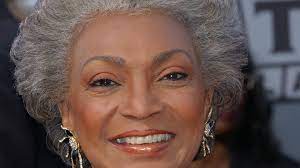 Black people of all abilities and professions were still being relegated to the corners of restaurants, hotels and offices. Black women, if ever mentioned in the larger media, were portrayed as either loud, undignified troublemakers or genial, overweight maids and nannies who supposedly delighted in doting on white folk’s children.
Black people of all abilities and professions were still being relegated to the corners of restaurants, hotels and offices. Black women, if ever mentioned in the larger media, were portrayed as either loud, undignified troublemakers or genial, overweight maids and nannies who supposedly delighted in doting on white folk’s children.Out of this madness, Uhura appeared.
A vision in red and black. Beautiful, smart as hell and not interested in nobody’s nonsense.
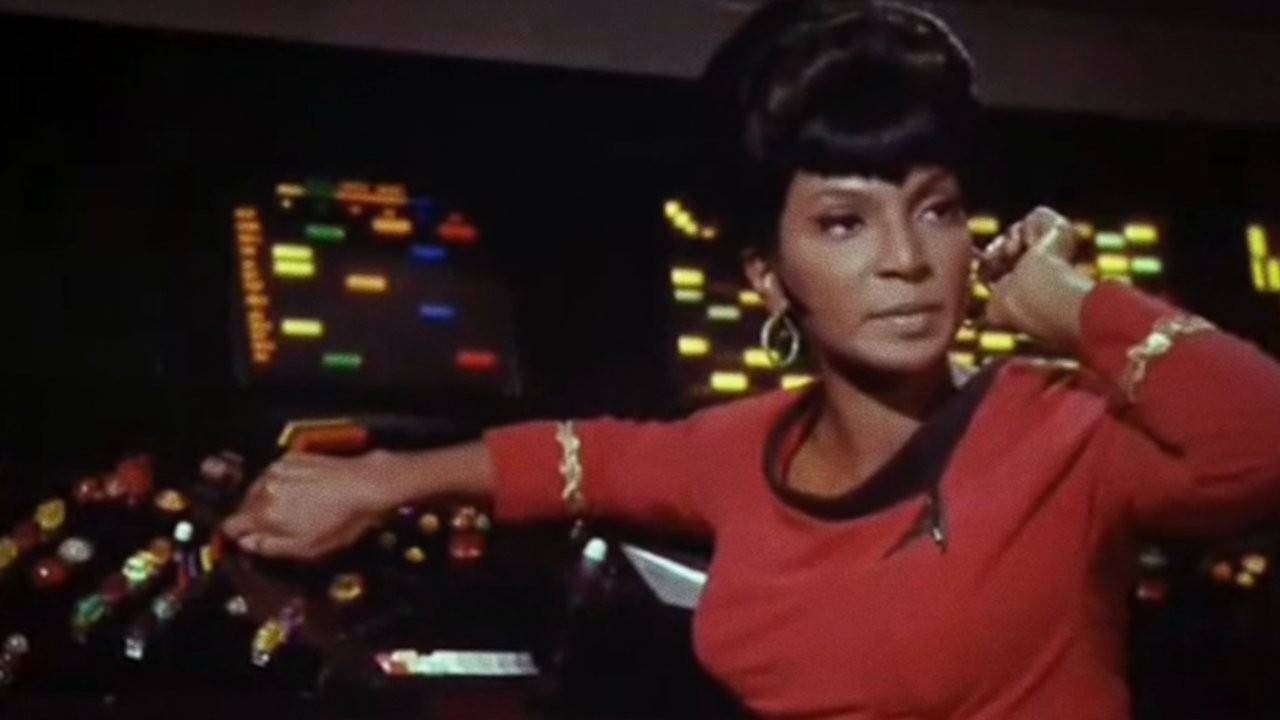
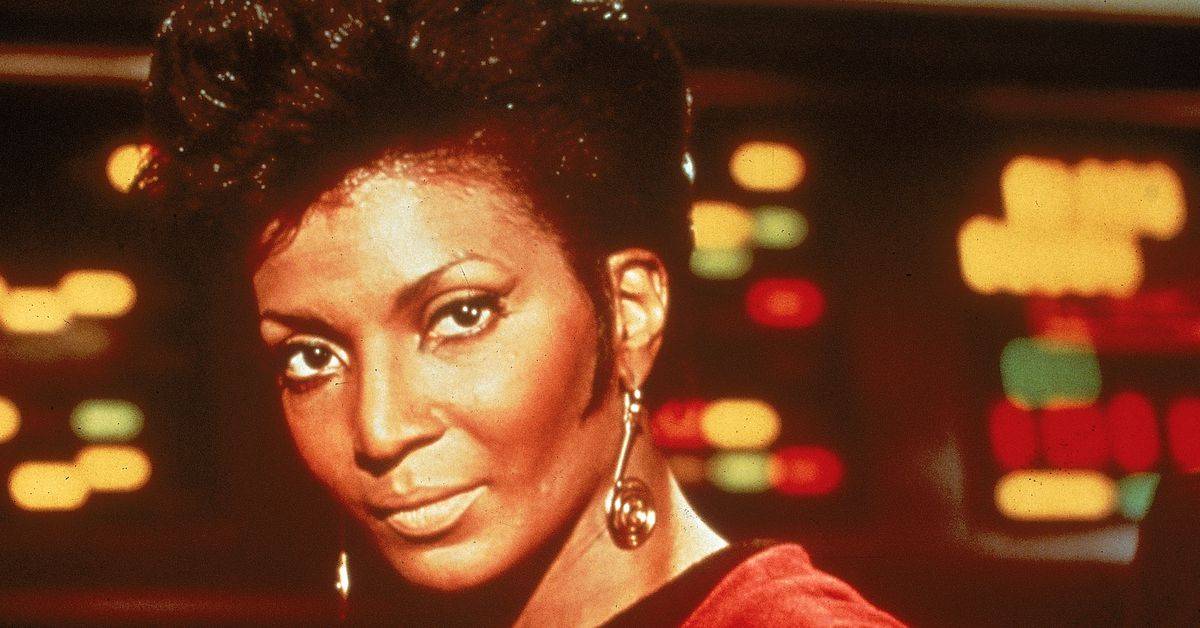
Reklamlar
04 Ağustos 2023
Reklamlar


